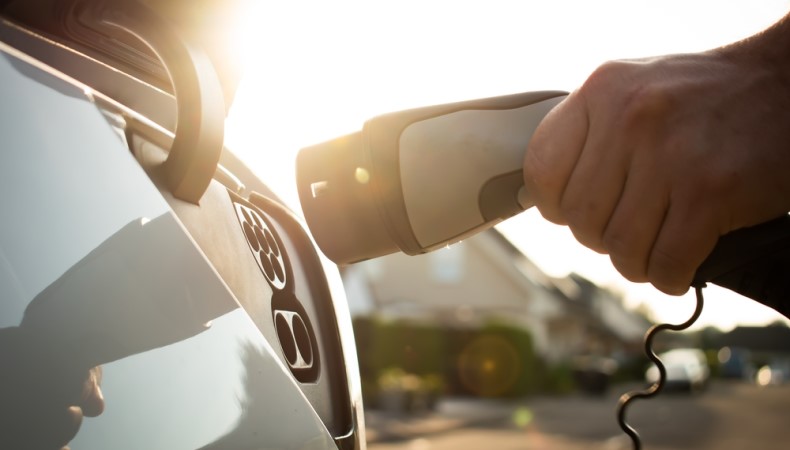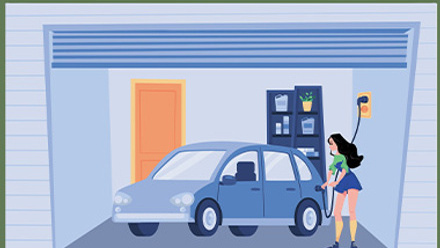Is now a good time to launch an electric vehicle salary sacrifice scheme?
To EV or not to EV. That is certainly one of the hot questions on REBA’s professional members forum rebaLINK, and anecdotally at the recent Employee Wellbeing Congress because reward and benefits professionals want answers. In the current climate, an EV salary sacrifice scheme, while good for ESG, needs to drive more benefits than fulfilling the green agenda.
Asking people to sacrifice a chunk of their salary during a cost of living crisis could be seen as a tall order, but actually having an EV salary sacrifice scheme could save people money – as long as they are not lower earners.
Moving from an internal combustion engine (ICE) to an EV or a hybrid will always come with a cost, says Alison Argall, business development director at Tusker. “Transitioning to new technology will always come at a premium, in the same way upgrading your iPhone comes with a healthy price tag. But when you look at the price of petrol it’s frightening,” says Argall, adding that there are “tangible benefits” too.
“Through the mechanism of salary sacrifice you are enabling a more expensive vehicle to be affordable, because you are making the sacrifice prior to tax and National Insurance being deducted.”
While the broader trend and demand for EV is firmly set with the government’s net zero agenda, the cost also plays a part in the popularity of EV schemes, says Thom Groot, co-founder and CEO of The Electric Vehicle Company. “Petrol prices are up by a lot and people are feeling the pinch in terms of cost of living,” says Groot, who says he has saved £4,000 a year on fuel since switching to an EV. “An EV is typically three to five times cheaper per mile for the electricity compared with a petrol or diesel car.”
However, Groot also acknowledges that electric vehicles are expensive. “If you’re used to driving a 20-year-old second hand car, upgrading to an electric car will be more expensive for the car itself. But yes, you will save money.
“You will save a lot of money on fuel and road tax, but electric cars are still expensive because they are a new technology,” he says, adding that he predicts they will become cheaper in the next couple of years.
Meanwhile, Ian Davis, head of payroll at Direct Line, believes that the low maintenance costs and the price of petrol will make them more popular.
“Electricity prices have gone up so it’s not as cheap as it was to charge an EV, but it’s still cheaper than filling your car with fuel,” he says. The main motivation for Direct Line are the ESG benefits of the scheme, which he believes only enhances its green benefits offering. “I would expect over the next 12 months to see many more employers setting a scheme up because it really does make sense. For our offering it aligns with the strategic pillars of Direct Line as an organisation.”
Everything you would usually Google…
How does tax on an EV salary sacrifice scheme work?
- The employer pays for the car and the employee agrees to a salary reduction by the amount it costs for the car. On the employee’s side they save on the income tax and National Insurance that they would have paid on the salary they are no longer receiving, and instead pay a small benefit in kind (BiK) tax on receiving the benefit. Calculate the cost of an EV through salary sacrifice.
How does BiK work?
- BiK tax is worked out on the taxable value of the car multiplied by the benefit tax rate. For example, 2% of a car worth £30,000 is £600, so the taxable value of that benefit is £600 and the tax you pay on that is your tax rate multiplied by the benefit you receive. So if you’re on a 40% tax rate, you would pay £240. The BiK rate for EVs is set for the next few years. View the most up to date BiK tax bands.
When it comes to launching an EV salary sacrifice scheme, it all comes down to mindset, according to Argall. “People need to be in the right headspace to think about what their motoring costs really look like,” she says. “Are they already financing a vehicle, did they spend a lot of money buying one outright? Sometimes people think their car doesn’t cost them money on a daily basis, but it does because it’s depreciating.
“You’ve already spent, in some cases, over £4,000 on the car, then you have insurance, roadside assistance and general wear and tear, which all adds up. There’s an opportunity to get people to understand that they could do all of this on salary sacrifice with peace of mind, tax efficiency and release the equity in their old car to free up cash.”
The EV agenda has grown enormously and continues to, but people may still need more information and clarification before they commit to a scheme. Fiona Howarth, CEO of Octopus Electric Vehicles, said that it was a big change for people. “When we launched our scheme last year, many people didn’t know you could use salary sacrifice for EV,” says Howarth. “Once it was explained, we found there was a huge appetite for it, because salary sacrifice makes it cheaper to get the EV equivalent compared to an ICE.”
Key dates
- All new cars sold in the UK will be electric by 2030
- The sale of hybrid cars will be banned after 2035
- The BiK tax rate beyond 2025-26 has not been set but the government should give clarity in the Autumn budget.







